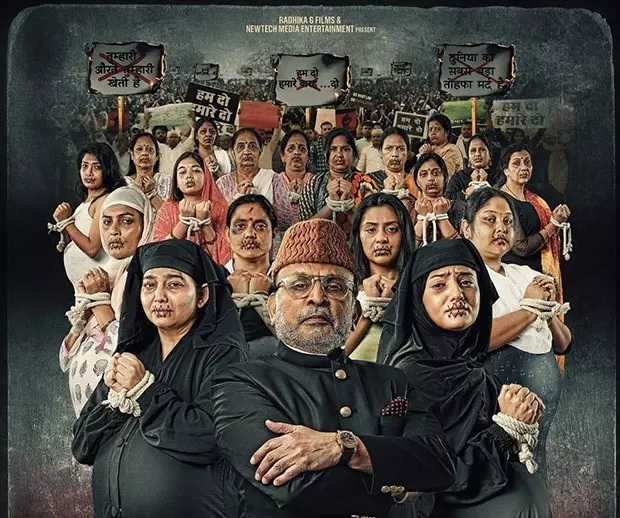
The Bollywood movie is slated to be released on Friday (June 7). Photo: X | @sanjoychakra
Karnataka bans release of ‘Humare Baarah’; says it could trigger communal tension
The main theme of the movie is overpopulation, and the makers of the film say that it was not made to target any particular religion

The Karnataka government has banned the release and broadcast of the Bollywood movie Humare Baarah in the state for at least two weeks or until its next order on apprehensions that communal tensions could be triggered by the film, according to the news agency ANI.
The decision has been taken under sections of the Karnataka Cinemas (Regulation) Act, 1964. Several minority organisations and other groups had requested the government to ban the film after watching the trailer.
Before this, the Bombay High Court lifted the stay the court itself had imposed on the film’s release two days earlier.
The court has instructed the respondents to form a 3-member committee with at least one from the Muslim community. The court has asked the committee to watch the movie and to submit a report while focussing purely on the movie’s theme and the claims made by the petitioners.
Humare Baarah, with its central narrative on overpopulation, stars Annu Kapoor, Manoj Joshi, Parth Samthaan, and Paritosh Tripathi, and is directed by Kamal Chandra. The Central Board of Film Certification (CBFC) directed the makers of the film to change the title from the original Hum Do Humare Baarah to the present Humare Baarah. The movie is slated to be released on Friday (June 7).
One of the actors in the film, Manoj Joshi, responding to the controversy around the movie, said it was not made to target any particular religion.
“I am an artist. I have done this film, but some people have opposed it. I am specifically saying that this movie was not made to target any religion. Today, there are discussions about the respect of women in our country. In any society, there should be no disrespect to women. A woman is not an object or a thing; she should be respected, as has been happening in this land of India. Secondly, the film talks about various topics like education, upbringing, employment, women’s respect and empowerment, and population. So, everyone should watch this film with their families,” Joshi told ANI.

